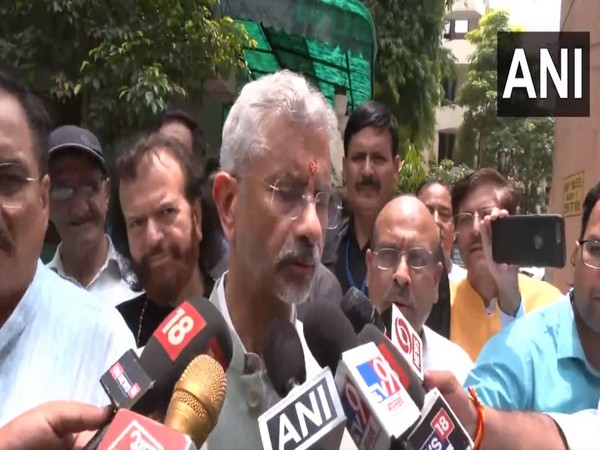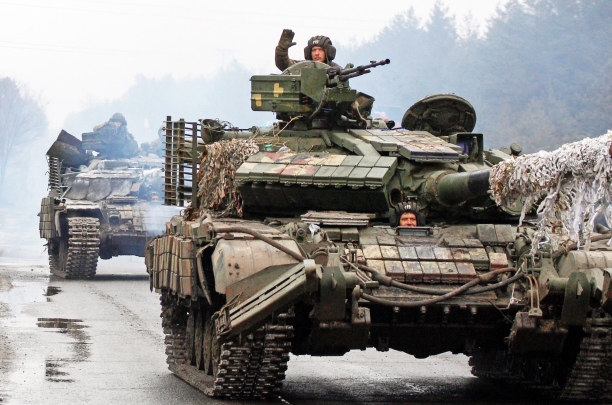India on Tuesday expelled a senior Canadian diplomat to India in a reciprocal move to Canada expelling a senior Indian diplomat.
The move comes after India rejected as “absurd and motivated” Canadian Prime Minister Justin Trudeau’s charge that India played a role in the June killing of a Khalistani terrorist Hardeep Singh Nijjar.
Canadian High Commissioner to India, Cameron MacKay was summoned today to the South Block, the headquarters of Ministry of External Affairs.
“The High Commissioner of Canada to India was summoned today and informed about the decision of the Government of India to expel a senior Canadian diplomat based in India,” a statement from the Ministry of External Affairs said today.
“The concerned diplomat has been asked to leave India within the next five days. The decision reflects the Government of India’s growing concern at the interference of Canadian diplomats in our internal matters and their involvement in anti-India activities,” it said.
Canadian Foreign Minister Melanie Joly on Monday said an Indian diplomat in Canada had been expelled, Joly said the Canadian government had expelled the Indian diplomat over allegations of the country’s involvement in the killing of the Khalistani leader
“We see this possible breach of sovereignty as completely unacceptable, and so, that is also why we’re coming (out) with this information (of the expulsion of the Indian diplomat) today,” Joly said at a news conference.
Meanwhile, India rejected allegations made by Trudeau in the Canadian Parliament.
“We have seen and reject the statement of the Canadian Prime Minister in their Parliament, as also the statement by their Foreign Minister” said the MEA in an official statement.
“Allegations of the Indian government’s “involvement in any act of violence in Canada are absurd and motivated” a statement said.
“Similar allegations were made by the Canadian Prime Minister to our Prime Minister and were completely rejected,” said the official release.
The statement said India is a democratic polity with a strong commitment to the rule of law.
“Such unsubstantiated allegations seek to shift the focus from Khalistani terrorists and extremists, who have been provided shelter in Canada and continue to threaten India’s sovereignty and territorial integrity. The inaction of the Canadian Government on this matter has been a long-standing and continuing concern,” the MEA statement said.
The release states that Canadian political figures have openly expressed sympathy for such elements and that remain a matter of deep concern.
“The space given in Canada to a range of illegal activities including murders, human trafficking and organised crime is not new” read the release.
India has strongly rejected any attempts to connect the government to such developments.
“We urge the Government of Canada to take prompt and effective legal action against all anti-India elements operating from their soil,” the MEA said.
Canadian Prime Minister Justin Trudeau on Monday accused the Indian government of being behind the fatal shooting of Khalistan Tiger Force chief Hardeep Singh Nijjar in Canada, CBC News reported.
Najjar, who was wanted in India, was gunned down outside a Gurdwara, in a parking area in Canada’s Surrey, British Columbia on June 18.
Hailing from Bharsinghpur village in Punjab’s Jalandhar, Nijjar was based in Surrey and had been declared “absconder” by the National Investigation Agency (NIA).
Earlier on Monday, speaking in a debate in the Canadian Parliament, Canadian PM Trudeau claimed his country’s national security officials had reasons to believe that “agents of the Indian government” carried out the killing of the Canadian citizen, who also served as the president of Surrey’s Guru Nanak Sikh Gurdwara.
“Canadian security agencies have been actively pursuing credible allegations of a potential link between agents of the Government of India and the killing of a Canadian citizen, Hardeep Singh Nijjar,” Trudeau said.
He stated that the involvement of a foreign hand or government in the killing of a Canadian citizen in Canada was unacceptable.
“Any involvement of a foreign government in the killing of a Canadian citizen on Canadian soil is an unacceptable violation of our sovereignty. It is contrary to the fundamental rules by which free, open, and democratic societies conduct themselves,” Trudeau added.
He informed further that he was coordinating with Canadian allies on this issue.
“As you would expect, we have been working closely and coordinating with our allies on this very serious matter,” he said. (ANI)
Read More: https://lokmarg.com/

